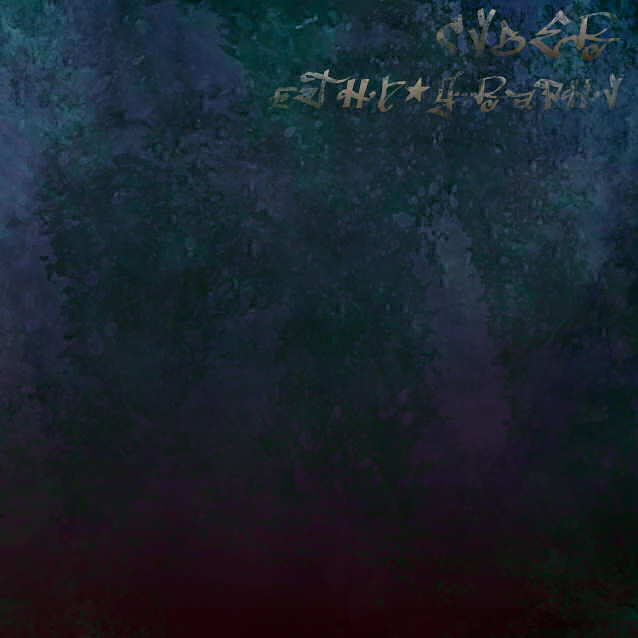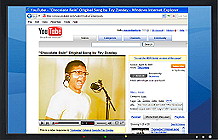CYBER
SPACE
ETHNO-
GRAPHY
Dr. Max Forte
CONCORDIA
UNIVERSITY
Dept. of Sociology &
Anthropology
CLASS
SCHEDULE
Week #1: Monday, January 5
INTRODUCTION
TO THE COURSE
[examine the website and course requirements very closely; set
up a blog (your research journal for this course); please
commence reading for the following week]
Week #2: Monday, January 12
VIRTUALITY,
CYBERCULTURE, and VIRTUAL ETHNOGRAPHY
Readings:
-
Hine, Christine. (2000). Virtual Ethnography.
London: Sage.
-
Hine, Christine. (1998). “Virtual Ethnography”.
Paper presented at the
Internet Research and Information for Social Scientists
conference, University of Bristol, 25-27 March. At
-
Hine, Christine. (n.d.). Virtual ethnography.
-
Silver, David. (n.d.) “Introducing Cyberculture”. Resource
Center for Cyberculture Studies.
-
Shields, Rob. (2006). “Virtualities”.
Theory, Culture &
Society 23 (2): 284-286.
Week #3: Monday, January 19
DOING
VIRTUAL ETHNOGRAPHIES, Part 1: VIRTUAL WORLDS
Film:
AVATARA
(72 mins.) -- shown in class, but you can also see it in advance
by clicking on the title or watching it on the front page of
this site (at the very bottom)
Readings:
-
Forte, Maximilian C. (2004). Review of
Avatara, (a “virtual ethnographic” film). Visual
Studies, 19 (1), 116-118.
-
Bell, Mark W. (2008). “Toward a Definition of 'Virtual
Worlds'.” Journal of Virtual Worlds Research, 1 (1)
July.
-
Maffesoli, Michel. (2008). “Second Life and Hyperreality.”
Journal of Virtual Worlds Research, 1 (2), November.
-
Boellstorff, Tom. (2008).
Coming of Age in Second Life.
Princeton, NJ: Princeton University Press. Ch. 3.
Monday, January 19, 2009
• Last
day to add winter term courses
• Deadline for withdrawal
with tuition refund from winter term courses
Week #4: Monday, January 26
DOING
VIRTUAL ETHNOGRAPHIES, Part 2: RESEARCH ETHICS
Readings:
-
Ess, Charles and the AoIR Ethics Working Group. (2002).
Ethical Decision-Making and Internet Research:
Recommendations from the AoIR Ethics Working Committee.
Association of Internet Researchers. (Read esp. pages 1-10)
-
Frankel, Mark S. and Sanyin Siang. (1999). “Ethical and
Legal Aspects of Human Subjects Research on the Internet”. A
Report of a Workshop, June 10-11, Washington DC. American
Association for the Advancement of Science.
-
Danet, Brenda. (2002). “Studies
of Cyberpl@y: ethical and methodological aspects.”
Week #5: Monday, February 2
DOING
VIRTUAL ETHNOGRAPHIES, Part 3: METHODS, 1/2
Readings:
-
Paccagnella, Luciano. (1997). “Getting the Seat of Your
Pants Dirty: Strategies for Ethnographic Research on Virtual
Communities”. Journal of Computer-Mediated Communication
3 (1).
-
Garton, Laura; Haythornthwaite, Caroline and Barry Wellman.
(1997). “Studying Online Social Networks”. Journal of
Computer-Mediated Communication 3 (1) at
-
Rybas, Natalia & Gajjala, Radhika (2007). “Developing
Cyberethnographic Research Methods for Understanding
Digitally Mediated Identities.” [33 paragraphs] Forum:
Qualitative Social Research 8 (3)
-
Megens, Helen and Brian Martin. (2003). “Cybermethods: An
Assessment”. First Monday
Week #6: Monday, February 9
DOING
VIRTUAL ETHNOGRAPHIES, Part 4: METHODS, 2/2
Readings:
-
Kivits, Joëlle. (2005). “Online Interviewing and the
Research Relationship.” In Christine Hine, ed., Virtual
Methods: Issues in Social Research on the Internet,
pp. 35-50. Oxford: Berg.
-
Rutter, Jason and Smith, Gregory W.H. (2005). “Ethnographic
Presence in a Nebulous Setting.” In Christine Hine, ed.,
Virtual Methods: Issues in Social Research on the Internet,
pp. 81-92. Oxford: Berg.
-
Beaulieu, Anne. (2005). “Sociable Hyperlinks: An
Ethnographic Approach to Connectivity.” In Christine Hine,
ed., Virtual Methods: Issues in Social Research on the
Internet, pp. 183-198. Oxford: Berg.
Week #7: Monday, February 16
CYBERSPACE
COMMUNITIES & IDENTITIES
Readings:
-
Kollock, Peter and Marc A. Smith. (1999). “Communities in
Cyberspace.” In Marc Smith and Peter Kollock, eds.,
Communities in Cyberspace, pp. 3-25. London: Routledge.
-
Turkle, Sherry. (1995). Life on the Screen. New York:
Simon and Schuster.
-
O’Brien, Jodi. (1999).
“Writing in the Body: Gender (Re)production in Online
Interaction”. In Marc A. Smith and Peter Kollock, eds.,
Communities in Cyberspace,
pp. 76-104. London: Routledge.
Optional:
Nakamura, Lisa (n.d.). “Race In/For Cyberspace: Identity Tourism
and Racial Passing on the Internet”. Online paper archived
Week #8: Monday, February 23
Mid-Term
Break
Friday, February 27
Week #9: Monday, March 2
SOCIAL
NETWORK SITES: SOCIAL CAPITAL, SURVEILLANCE
Readings:
-
boyd, danah m. and Nicole B. Ellison. (2007). “Social
Network Sites: Definition, History, and Scholarship”.
Journal of Computer-Mediated Communication 13 (1)
-
Ellison, Nicole B.;
Steinfield, Charles and Cliff Lampe. (2007). “The
Benefits of Facebook ‘Friends’: Social Capital and College
Students’ Use of Online Social Network Sites”. Journal of
Computer-Mediated Communication
12: 1143-1168.
-
Lange, Patricia G. (2007). “Publicly Private and Privately
Public: Social networking on YouTube”. Journal of
Computer-Mediated Communication 13 (1)
Week #10: Monday, March
9
ONLINE
NARRATIVE NETWORKING
Readings:
-
Doostdar, Alireza. (2004).
“ ‘The Vulgar
Spirit of Blogging’: On Language, Culture, and Power in
Persian Weblogestan.” American Anthropologist
106 (4): 651-662.
-
Schmidt, Jan. (2007). “Blogging Practices: An Analytical
Framework”. Journal of Computer-Mediated Communication
12: 1409-1427.
-
Baker, Nicholson. (2008). “The Charms of Wikipedia.”
The
New York Review of Books, 55 (4), March 20.
(presentations will be
scheduled for the following weeks, on March 9)
Week #11: Monday, March
16
PROJECT
PRESENTATIONS
Monday, March 16, 2009
• Last day for academic
withdrawal from two-term and winter-term courses.
Week #12: Monday, March
23
PROJECT
PRESENTATIONS
Week #13: Monday, March
30
PROJECT
PRESENTATIONS
Week #14: Monday, April
6
PROJECT
PRESENTATIONS
|




